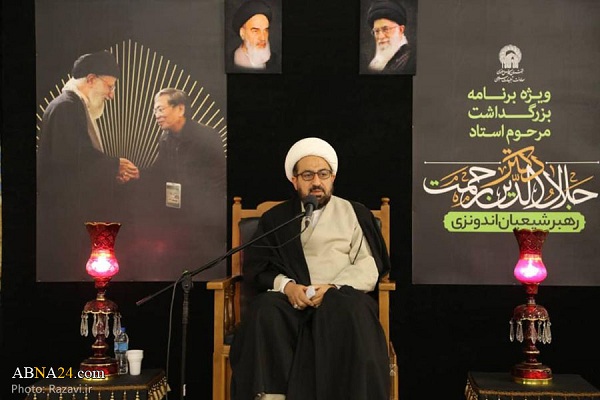Commemoration ceremony of Dr. Jalal al-Din Rahmat held in holy shrine of Imam Reza (+ Photos)
The commemoration ceremony of the chairman of AhlulBayt (a.s.) Society of Indonesia (IJABI) was held in the holy shrine of Imam Reza (a.s.).
Organized by Astan Quds Razavi, a special program was held in the holy shrine of Imam Reza (a.s.) in honor of the great Scholar of the Islamic world and great Shiite thinker, chairman of AhlulBayt (a.s.) Society of Indonesia (IJABI) the late Professor Jalal al-Din Rahmat.
The ceremony was held on Sunday, February 21, 2021, in the courtyard of Dar al-Marhama of the Holy Shrine of Imam Reza, organized by the Deputy of non-Iranian pilgrims of Astan Quds Razavi and the Deputy of International Affairs of the Academic and Cultural Organization of Astan Quds Razavi, with the presence of a group of scholars, “Mostafa Khaksar Ghahroudi” the deputy custodian of Astan Quds and a group of officials and managers of the holy shrine, as well as some Indonesian scholars.
The ceremony began with the recitation of a few verses from the Holy Quran. The recitation of the Ziarat of Rajabiyya of Imam Reza, speeches, and the broadcast of the gratitude message of the son of Prof. Jalal al-Din Rahmat, were among the programs.
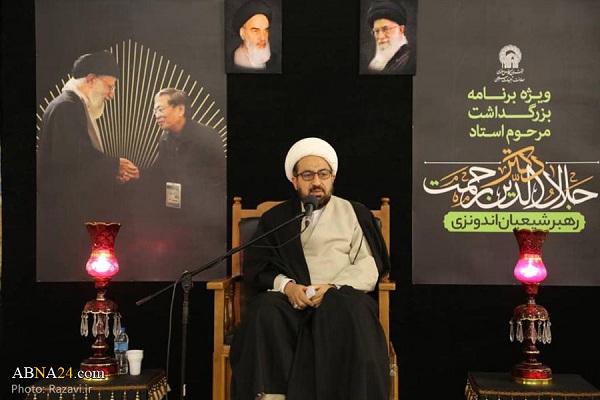
The representative of the Supreme Leader in Indonesia, Hojat al-Islam Abdul Majid Hakim Elahi, delivered a speech at the ceremony. He explained the situation of Islam in Southeast Asia, especially Indonesia, and the activities of Dr. Jalal al-Din Rahmat, as well as the process of his influence in spreading the teachings of the AhlulBayt (a.s.) in Indonesia and Southeast Asia.
Known as Malay, Southeast Asia is a strategic region of interest to various countries. Trade relations between the region and the Middle East have existed for 4,000 years, and the travels of merchants have brought Iranians and Arabs to the region.
“The Islam which entered the region had three origins with Shiite roots. First, due to the oppression of the Abbasids and the Umayyads against the Shiites, some of them migrated to the Malay region,” said Hojat al-Islam Hakim Elahi, stating that in the 3rd century AH, Islam entered the region of the Malay Archipelago.
“The second reason for the arrival of Islam in Southeast Asia was the Iranian merchants who while were trading, exchanged their culture, and took missionaries with them to propagate Islam,” he added.
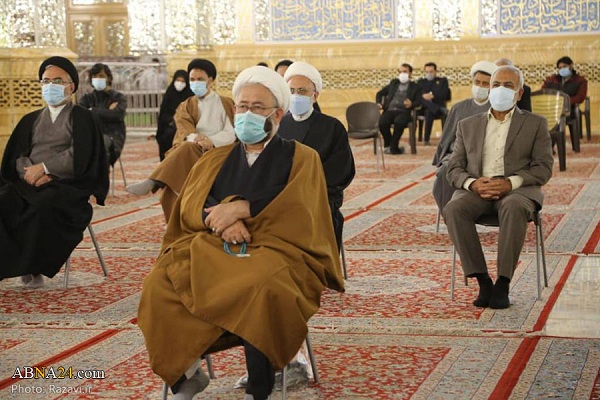
“Shiites have ruled the Malay region for more than 300 years. But after the colonization of the region by the Netherlands, Portugal, and Britain, they were suppressed and forced to Taqiya (hiding the real belief),” added the representative of the Supreme Leader in Indonesia.
Continuing his speech, he examined the impact of the Islamic Revolution (of Iran) and Imam Khomeini in the international arena.
According to Hojat al-Islam “Hakim Elahi”, the most important impact of the Islamic Revolution (of Iran) in the international arena is the replacement of the Western ideology with Islamic ideology, and the introduction of religious symbols in society, and the tendency to spirituality.
“He was educated in the United States and was influenced by the wave of (Iran Islamic) Revolution. While communicating with Iranians, he changed his denomination (to Shia) and created a new discourse,” he said, introducing the prominent personality and activities of the late Jalal al-din Hekmat.
“In Indonesia, Jalal al-din Hekmat taught the thoughts and ideas of Imam Khomeini, Martyr Motahhari, and Martyr Sadr and published these thoughts. So that a large number of young people joined him and a philosophical enlightenment was formed,” said the representative of the Supreme Leader in Indonesia.
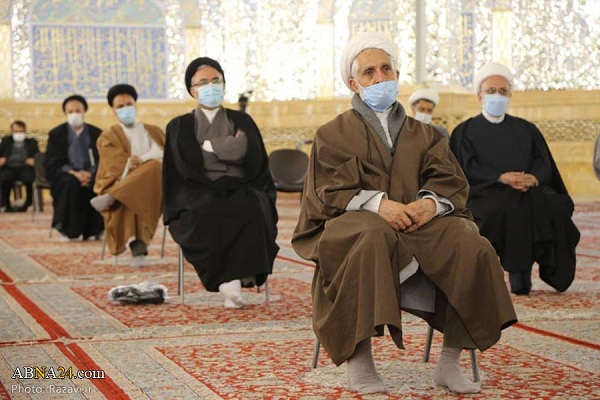
“Before the victory of the Islamic Revolution in Iran, the number of Shiites in the Malay region did not reach 100. However, with the activities of the late Jalal al-din Hekmat in order to spread the thoughts and ideas of Imam Khomeini, currently 2.5 to 4 million Shiites live in this country,” he stated.
According to this official, the establishment of Shahid Motahari Institute (in Indonesia), and primary, middle, and high schools in Malaysia, translation of all books by Shahid Motahari and Shahid Sadr, as well as the translation of Nahj al-Balaghah, and also authorship of more than 20 works, were among the including the activities of this Indonesian Shiite leader.
“Influence on commonalities between Shiites and Sunnis, strengthening the economic power of Muslims, using new social methods, holding specialized meetings, applying religious rituals, encouraging people to visit Imam Reza (a.s.), using the epistemological capacities of Shiites, etc., were among the activities of this Shiite scholar,” he said, referring to the activities of the late Jalal al-Din Hekmat.
Following the ceremony, Mr. Meftah Fawzi Rahmat, the son of the late Dr. Jalal al-Din Rahmat, read a message of appreciation and thanks to the participants in an online call.
“My family and I sincerely thank and appreciate the holding of my father’s commemoration ceremony in the holy shrine of Reza,” he said in part of his message.
“It is a great honor to have a commemoration ceremony for my father in this holy place. We thank God for this,” he added.
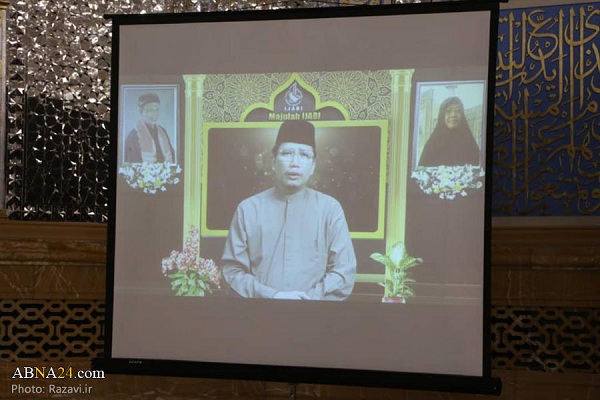
“I thank all the scholars and thinkers for holding this commemoration ceremony, as well as the custodian of the Astan Quds Razavi,” Meftah Rahmat said, appreciating and thanking the custodian of Astan Quds Razavi for holding this ceremony.
“I have very good memories of my honoring to enter the holy city of Mashhad and the court of light of Ali ibn Musa al-Reza (a.s.). The role of Imam Reza (a.s.) has been very crucial in the life of our family and the days we spent in the city of Mashhad and the shrine of Imam Reza (a.s.) are among the best days of our lives,” he emphasized.
“I wish these hard days of Covid-19 were over and I could travel to Mashhad and touch the Panjareh Foulad (steel window of the holy shrine of Imam Reza),” Meftah Rahmat said.
The commemoration ceremony of the chairman of AhlulBayt (a.s.) Society of Indonesia (IJABI) was held in the holy shrine of Imam Reza (a.s.).
Organized by Astan Quds Razavi, a special program was held in the holy shrine of Imam Reza (a.s.) in honor of the great Scholar of the Islamic world and great Shiite thinker, chairman of AhlulBayt (a.s.) Society of Indonesia (IJABI) the late Professor Jalal al-Din Rahmat.
The ceremony was held on Sunday, February 21, 2021, in the courtyard of Dar al-Marhama of the Holy Shrine of Imam Reza, organized by the Deputy of non-Iranian pilgrims of Astan Quds Razavi and the Deputy of International Affairs of the Academic and Cultural Organization of Astan Quds Razavi, with the presence of a group of scholars, “Mostafa Khaksar Ghahroudi” the deputy custodian of Astan Quds and a group of officials and managers of the holy shrine, as well as some Indonesian scholars.
The ceremony began with the recitation of a few verses from the Holy Quran. The recitation of the Ziarat of Rajabiyya of Imam Reza, speeches, and the broadcast of the gratitude message of the son of Prof. Jalal al-Din Rahmat, were among the programs.

The representative of the Supreme Leader in Indonesia, Hojat al-Islam Abdul Majid Hakim Elahi, delivered a speech at the ceremony. He explained the situation of Islam in Southeast Asia, especially Indonesia, and the activities of Dr. Jalal al-Din Rahmat, as well as the process of his influence in spreading the teachings of the AhlulBayt (a.s.) in Indonesia and Southeast Asia.
Known as Malay, Southeast Asia is a strategic region of interest to various countries. Trade relations between the region and the Middle East have existed for 4,000 years, and the travels of merchants have brought Iranians and Arabs to the region.
“The Islam which entered the region had three origins with Shiite roots. First, due to the oppression of the Abbasids and the Umayyads against the Shiites, some of them migrated to the Malay region,” said Hojat al-Islam Hakim Elahi, stating that in the 3rd century AH, Islam entered the region of the Malay Archipelago.
“The second reason for the arrival of Islam in Southeast Asia was the Iranian merchants who while were trading, exchanged their culture, and took missionaries with them to propagate Islam,” he added.

“Shiites have ruled the Malay region for more than 300 years. But after the colonization of the region by the Netherlands, Portugal, and Britain, they were suppressed and forced to Taqiya (hiding the real belief),” added the representative of the Supreme Leader in Indonesia.
Continuing his speech, he examined the impact of the Islamic Revolution (of Iran) and Imam Khomeini in the international arena.
According to Hojat al-Islam “Hakim Elahi”, the most important impact of the Islamic Revolution (of Iran) in the international arena is the replacement of the Western ideology with Islamic ideology, and the introduction of religious symbols in society, and the tendency to spirituality.
“He was educated in the United States and was influenced by the wave of (Iran Islamic) Revolution. While communicating with Iranians, he changed his denomination (to Shia) and created a new discourse,” he said, introducing the prominent personality and activities of the late Jalal al-din Hekmat.
“In Indonesia, Jalal al-din Hekmat taught the thoughts and ideas of Imam Khomeini, Martyr Motahhari, and Martyr Sadr and published these thoughts. So that a large number of young people joined him and a philosophical enlightenment was formed,” said the representative of the Supreme Leader in Indonesia.

“Before the victory of the Islamic Revolution in Iran, the number of Shiites in the Malay region did not reach 100. However, with the activities of the late Jalal al-din Hekmat in order to spread the thoughts and ideas of Imam Khomeini, currently 2.5 to 4 million Shiites live in this country,” he stated.
According to this official, the establishment of Shahid Motahari Institute (in Indonesia), and primary, middle, and high schools in Malaysia, translation of all books by Shahid Motahari and Shahid Sadr, as well as the translation of Nahj al-Balaghah, and also authorship of more than 20 works, were among the including the activities of this Indonesian Shiite leader.
“Influence on commonalities between Shiites and Sunnis, strengthening the economic power of Muslims, using new social methods, holding specialized meetings, applying religious rituals, encouraging people to visit Imam Reza (a.s.), using the epistemological capacities of Shiites, etc., were among the activities of this Shiite scholar,” he said, referring to the activities of the late Jalal al-Din Hekmat.
Following the ceremony, Mr. Meftah Fawzi Rahmat, the son of the late Dr. Jalal al-Din Rahmat, read a message of appreciation and thanks to the participants in an online call.
“My family and I sincerely thank and appreciate the holding of my father’s commemoration ceremony in the holy shrine of Reza,” he said in part of his message.
“It is a great honor to have a commemoration ceremony for my father in this holy place. We thank God for this,” he added.

“I thank all the scholars and thinkers for holding this commemoration ceremony, as well as the custodian of the Astan Quds Razavi,” Meftah Rahmat said, appreciating and thanking the custodian of Astan Quds Razavi for holding this ceremony.
“I have very good memories of my honoring to enter the holy city of Mashhad and the court of light of Ali ibn Musa al-Reza (a.s.). The role of Imam Reza (a.s.) has been very crucial in the life of our family and the days we spent in the city of Mashhad and the shrine of Imam Reza (a.s.) are among the best days of our lives,” he emphasized.
“I wish these hard days of Covid-19 were over and I could travel to Mashhad and touch the Panjareh Foulad (steel window of the holy shrine of Imam Reza),” Meftah Rahmat said.


